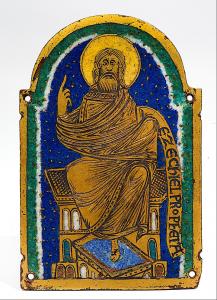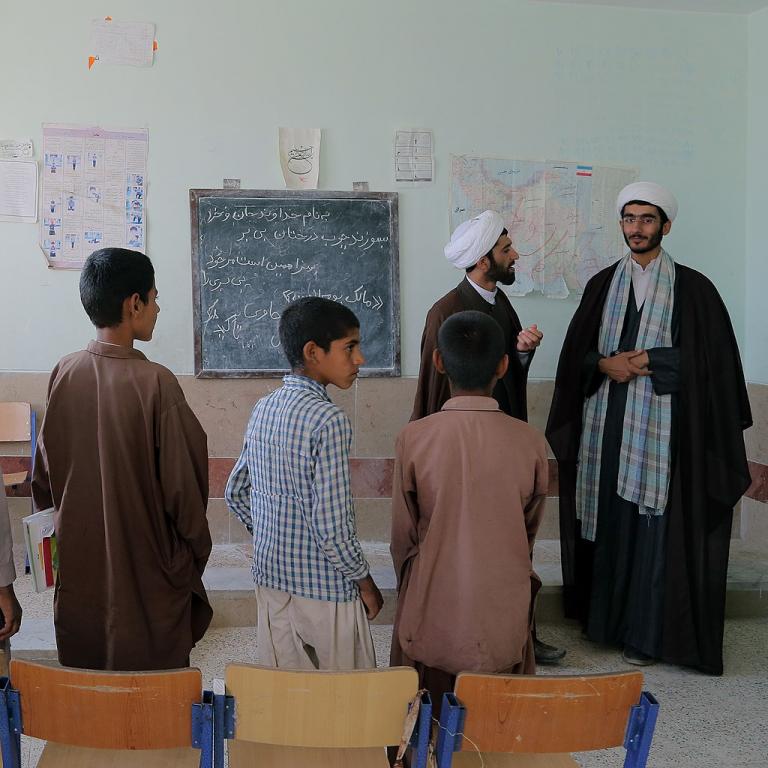(Lectionary for May 20)
I know full well that the vast majority of you will use the famous Acts 2 passage as the source of your Pentecost sermon, but I have in previous essays suggested my deep distaste for the raging anti-Jewish cast of Peter’s ancient sermon, as constructed by Luke. I know that earliest Christianity was in the business of separating itself from its Jewish roots, urging all of its followers to proclaim Jesus as the long awaited Messiah of Israel in order to differentiate itself from their Jewish brothers and sisters who were still waiting for the restoration of the land and religion they had revered for so long, both of which were still under the iron fist of Rome. The goal was separation, but I regret the dark and evil tone that is found in the excoriation and rejection of the Jews as murderers of the Christ. The horrors of such a maneuver have been played out in the succeeding centuries, and I wish to distance myself, as a Christian, from such monstrousness. Hence, I will turn to Ezekiel’s famous valley as an alternative text for this day.
 When looked at in a certain way, Ezekiel 37 might be seen as an antidote to the terrible history of the Christian/Jewish division in part engendered by Acts 2 and similar passages. We Christians of the centuries following the origins of our faith have ourselves become again and again dry bones in need of revivification and new life. And though it is obvious that Ezekiel in the 6th century BCE was speaking an extended metaphor concerning the destroyed land of Israel, devastated by the might of Babylon, his spooky and delightful parable speaks as well for any situation of withered and desiccated situations, whether individually or societally. I think the day of Pentecost is about centrally the birth of something new and fresh, empowered by the gift of God’s rushing and flaming Spirit. Hence, Pentecost celebrates new beginnings, fresh hopes. One might put it this way: there is no dead so dead that God cannot find life in it.
When looked at in a certain way, Ezekiel 37 might be seen as an antidote to the terrible history of the Christian/Jewish division in part engendered by Acts 2 and similar passages. We Christians of the centuries following the origins of our faith have ourselves become again and again dry bones in need of revivification and new life. And though it is obvious that Ezekiel in the 6th century BCE was speaking an extended metaphor concerning the destroyed land of Israel, devastated by the might of Babylon, his spooky and delightful parable speaks as well for any situation of withered and desiccated situations, whether individually or societally. I think the day of Pentecost is about centrally the birth of something new and fresh, empowered by the gift of God’s rushing and flaming Spirit. Hence, Pentecost celebrates new beginnings, fresh hopes. One might put it this way: there is no dead so dead that God cannot find life in it.
The bleak scene of the valley is painted starkly. Ezekiel, in typical fashion for this most unusual of prophets, is swept up by God’s Spirit and deposited summarily into a valley littered with dry bones. One can imagine that in the ancient land of Israel, it was not uncommon to wander into various unfamiliar places and discover there the dried up bones of certain deceased people, killed by bandits or small armies or wasted by disease or famine. Significant numbers of years would need to pass before the bones of the dead dried out, though less time in the furnace-like deserts of Israel. The sign of dry bones was the sign of defeat and loss, along with the fear of one’s own possible destiny.

Ezekiel sees in this unnamed valley bones, bones, and more bones. Suddenly, YHWH asks an absurd question. “Mortal (literally, “Son of mortal”), can these bones live?” The correct answer should be, “Not likely, God,” but Ezekiel replies rather more piously than he may be feeling: “O YHWH God; you know!” A delightfully ambiguous response! He may mean, “God, you know, but I sure don’t!” Or “God, you may know, but I don’t, and neither do I care very much. After all, I do know the future of dry bones; they are destined to remain dry until my own bones dry out!” He could also mean, “God, do you know?” Whichever his meaning, YHWH then commands the prophet, “Prophesy to these bones!” You have no doubt heard of St. Francis’ famous sermon to the birds, and you may feel that your sermons have on occasion been preached to a collection of dry bones, but the picture here is distinctly ludicrous. Preach to bones? What could be the possible outcome of bone preaching? A preacher might shout her lungs out, might conjure the finest metaphors, the sweetest words, the cleverest phrases, but if she preaches to bones, she is going to waste whatever breath she has been given.
Nevertheless, Ezekiel pushes out his chest, fills his lungs, and starts preaching. Almost immediately, there is a noise, and bone rattling, and the bones suddenly knit themselves together, are subsequently covered in tendons and sinews and skin. But these Frankenstein creatures remain inert, having no breath in them. And so YHWH now bids Ezekiel to preach to the breath. Goodness, at least he could see the bones, but now his congregation is the invisible breath! Again, the prophet does the absurd and launches into a sermon for breath, the result of which is the rushing of the wind from the four corners of the earth that breathes into the inanimate creatures, stands them up on their feet, and constitutes them as part of a vast multitude.
“There,” says YHWH, “is the whole house of Israel.” They are the ones who kept saying that their bones were dried up, that their hope was lost, that their lives were completely cut off. But just look at them now! This multitude is on its way back to the land of Israel. Their bones are renewed, their hope is restored, their very lives have been refreshed and renewed. I, and I imagine some of you, need desperately such a wind-borne restoration. We need a Day of Pentecost, a Day of the New!
 As I write this day, the current occupant of the White House has unilaterally withdrawn the US from the carefully negotiated Iran nuclear accord, a deal that has been hailed by many, especially our European allies, as one that made the world a safer place, one that coaxed the Iranians to enter more fully into the company of the nations. After today’s announcement, the world is once again a more belligerent place, where two powerful nations rather than working toward peace are now antagonistically sparring about sanctions, missiles, and warheads. In God’s good name, in the name of the Prince of Peace, we need a Pentecost where dry bones can live, where bombs can be turned into bread and missiles into medicine.
As I write this day, the current occupant of the White House has unilaterally withdrawn the US from the carefully negotiated Iran nuclear accord, a deal that has been hailed by many, especially our European allies, as one that made the world a safer place, one that coaxed the Iranians to enter more fully into the company of the nations. After today’s announcement, the world is once again a more belligerent place, where two powerful nations rather than working toward peace are now antagonistically sparring about sanctions, missiles, and warheads. In God’s good name, in the name of the Prince of Peace, we need a Pentecost where dry bones can live, where bombs can be turned into bread and missiles into medicine.
Oh, YHWH! Can these bones live? Surely, you know, O God. I trust that God does know and at the same time is at work for full life for all dry bones, and bids us work for the same.
(Images from Wikimedia Commons)











